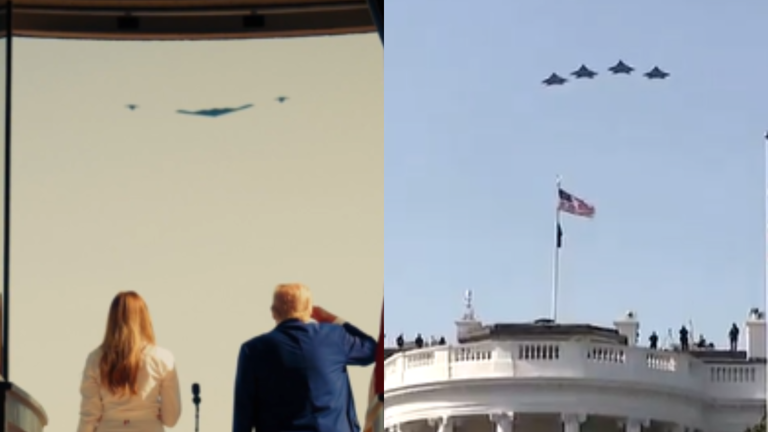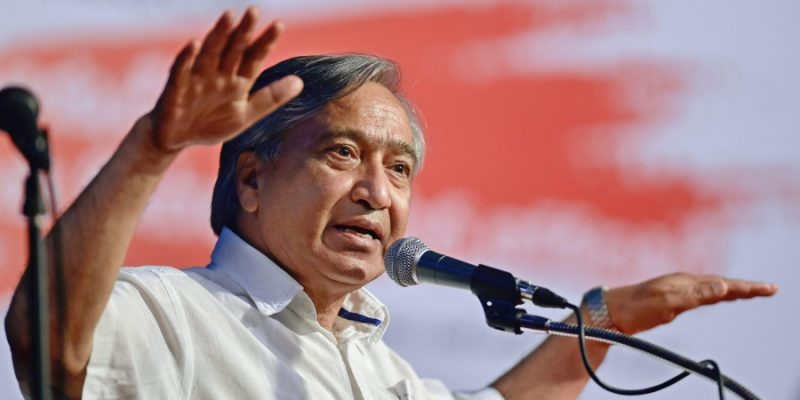White House Confirms Trump Weighing US Role in Israel-Iran Conflict Amid Diplomatic Talks
Amid rising tensions in the Middle East and escalating hostilities between Israel and Iran, former U.S. President and 2024 Republican frontrunner Donald Trump is now at the center of a global security decision. The White House has confirmed that Trump will decide within two weeks whether the United States will join Israeli strikes against Iran’s nuclear facilities. The outcome of diplomatic talks between Washington and Tehran is expected to heavily influence the final call.
This announcement, made by White House Secretary Karoline Leavitt, comes at a time when international pressure is mounting on Iran to halt its nuclear program. Trump’s decision will likely shape the next phase of U.S. involvement in the Middle East and could potentially mark a turning point in the conflict that has already drawn global attention.
Trump’s Strike Decision Linked to Iran Negotiation Outcomes
In an official statement, White House Secretary Karoline Leavitt quoted Trump as saying:
“Based on the fact that there’s a substantial chance of negotiations that may or may not take place with Iran in the near future, I will make my decision whether or not to go within the next two weeks.”
🚨 @PressSec shares an important message from President Donald J. Trump: "Based on the fact that there's a substantial chance of negotiations that may or may not take place with Iran in the near future, I will make my decision whether or not to go within the next two weeks." pic.twitter.com/Xh3rNuURn0
— The White House (@WhiteHouse) June 19, 2025
This remark indicates a wait-and-watch strategy, suggesting that Trump is currently gauging the effectiveness of backchannel diplomatic efforts. The administration is reportedly hoping for a breakthrough that could delay or eliminate the need for military escalation.
However, with Israel continuing its high-precision strikes on Iran’s nuclear-related sites, the clock is ticking. Trump’s decision will not just determine the U.S. military’s involvement—it will also set the tone for America’s broader policy toward Iran under his leadership. If the U.S. joins Israeli operations, it would mark a significant escalation that could drag multiple regional players into a wider Middle East conflict.
Sources close to the Trump camp say that national security advisors are split, with some pushing for immediate deterrence through coordinated strikes, while others warn of unintended consequences, including retaliation and oil market volatility. The pressure is immense, especially with the 2024 presidential elections drawing near and Trump aiming to showcase his decisiveness on foreign policy.
US-UK Alliance Strengthens Against Iran’s Nuclear Ambitions
While the world awaits Trump’s final decision, diplomatic coordination with allies continues. In a recent high-level meeting, US Secretary of State met with UK Foreign Secretary David Lammy to reinforce a joint stance against Iran’s nuclear proliferation. Both nations agreed that Iran must never be allowed to acquire nuclear weapons. This transatlantic unity adds weight to any future action the U.S. may undertake and signals a broader Western consensus against Iran’s nuclear ambitions. Notably, the U.S.-UK alignment is also a diplomatic message to other nations, including European Union states, who remain cautious about direct military involvement.
Amid conflict in Middle East, U.S & UK united on Iran
— TIMES NOW (@TimesNow) June 20, 2025
- Rubio & Lammy have been holding discussions on the Iran crisis.
- 'No nukes for Iran' assertion.@srinjoyc1 & @anchoramitaw with more details. pic.twitter.com/erjZdxTqHL
The renewed alliance may also serve as a counterbalance to Iran’s deepening ties with China and Russia, both of whom have criticized Western interventionist policies. If Trump does choose to go ahead with strikes, it is expected that the U.K. may offer intelligence and logistical support, even if it does not join militarily.
Analysts believe that the window for diplomacy is rapidly closing, and that Iran’s continued uranium enrichment may soon reach the threshold that forces the U.S. to act—whether Trump prefers it or not. With Israel clearly intent on eliminating perceived nuclear threats before they materialize, Trump’s two-week deadline may become the final diplomatic countdown.
Donald Trump’s upcoming decision will not only affect the Iran-Israel standoff, but also define the U.S.’s global leadership posture in an increasingly volatile world. With the backing of allies like the U.K. and the weight of pending negotiations with Iran, the next two weeks will be crucial. The world watches closely—will diplomacy prevail, or will warplanes take to the skies?





















